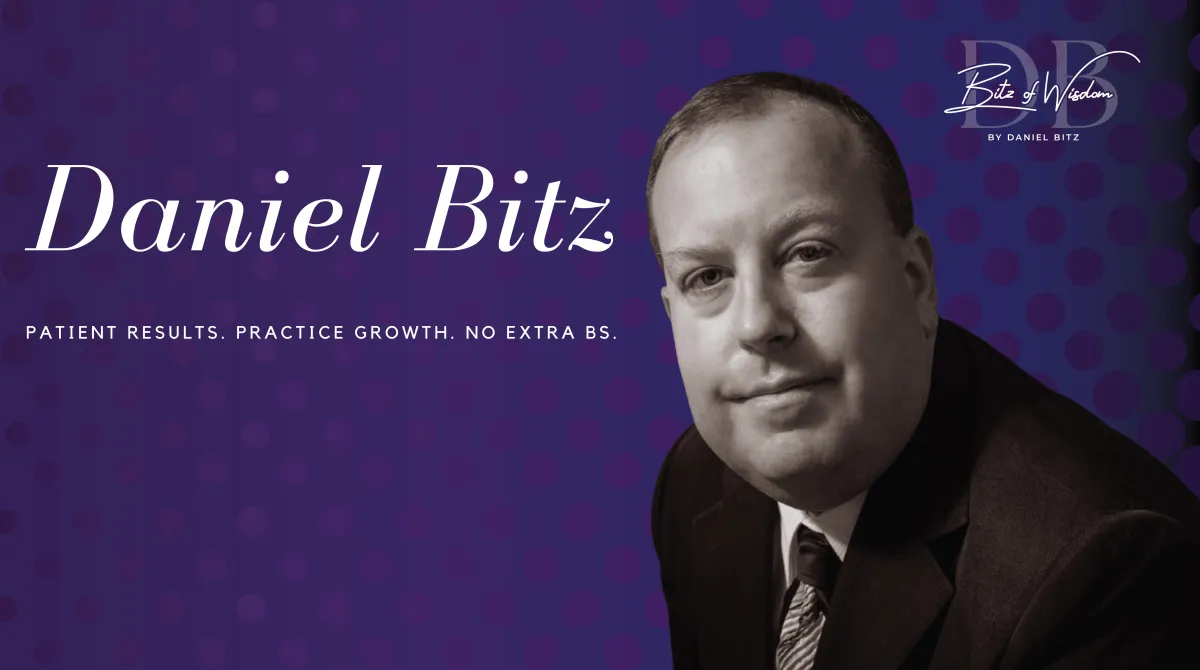
Welcome to the Bitz of Wisdom Blog — Where Practice Growth Meets Patient Care!
I’m thrilled you’re here. My blog is specifically designed for licensed healthcare professionals like you — dedicated to providing exceptional patient care while building a thriving practice.
My mission is simple: to offer straightforward, practical advice that empowers you to tackle challenges, seize opportunities, and achieve meaningful results — for your patients, your practice, and your professional growth.
Take a moment to explore topics that resonate with you, bookmark your favorite posts, and make this blog your go-to resource for actionable strategies that work in the real world.
Thank you for visiting—it’s an honor to be part of your journey.
Let’s dive in and unlock what’s possible for your practice today!
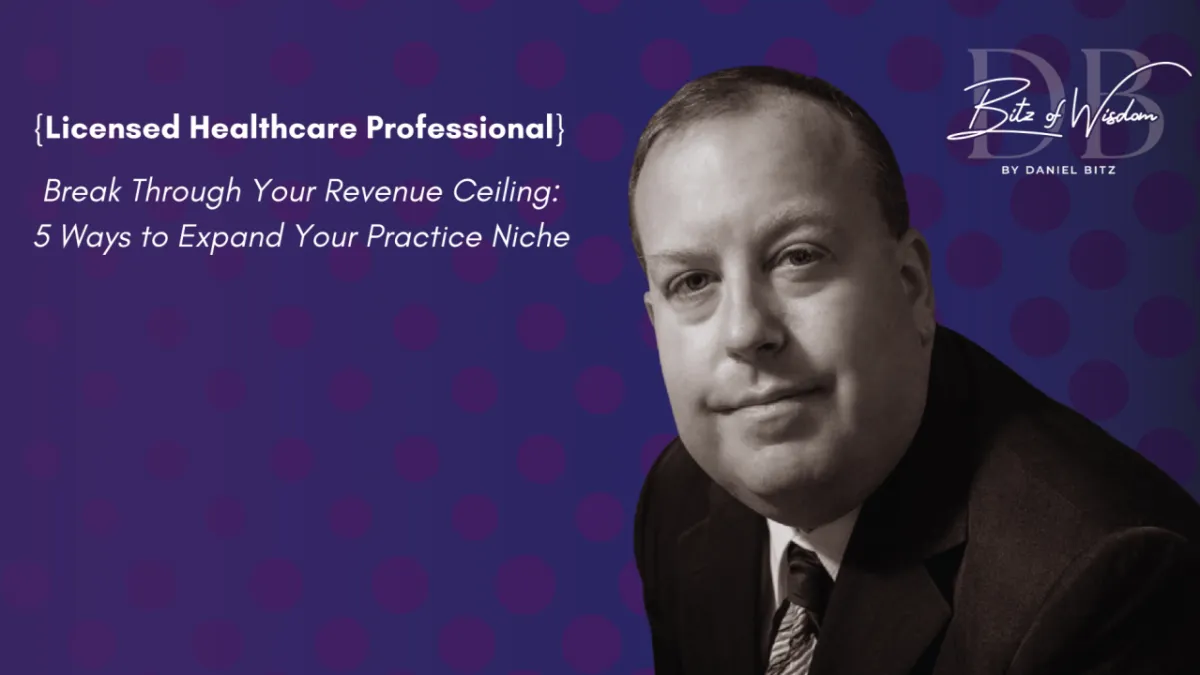
Break Through Your Revenue Ceiling:
5 Ways to Expand Your Practice Niche.
Written by Daniel Bitz
Posted on December 4, 2025
If Think your market is maxed out? Most practices aren't - they're leaving revenue on the table. Discover 5 ways to expand your niche and grow your practice.
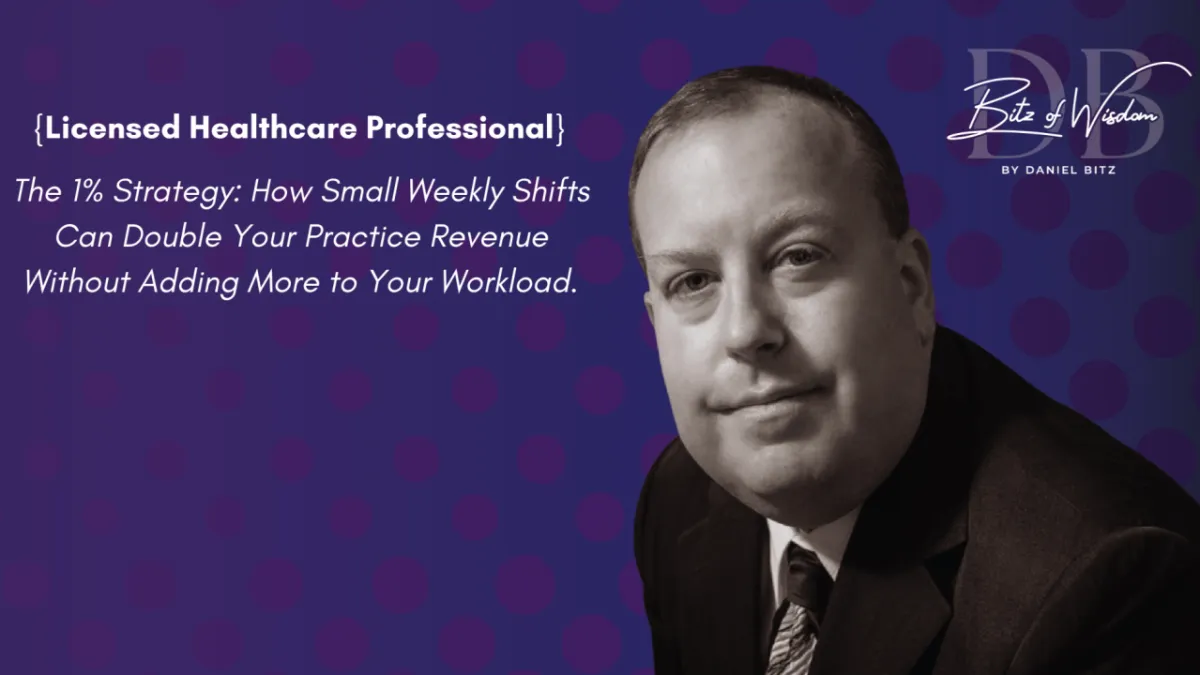
The 1% Strategy: How Small Weekly Shifts Can Double Your Practice Revenue Without Adding More to Your Workload.
Written by Daniel Bitz
Posted on December 1, 2025
If you’re tired of being told to “work harder” or “see more patients,” this article shows a different path—how tiny weekly improvements can compound into major revenue gains without adding pressure, hours, or complexity to your practice.
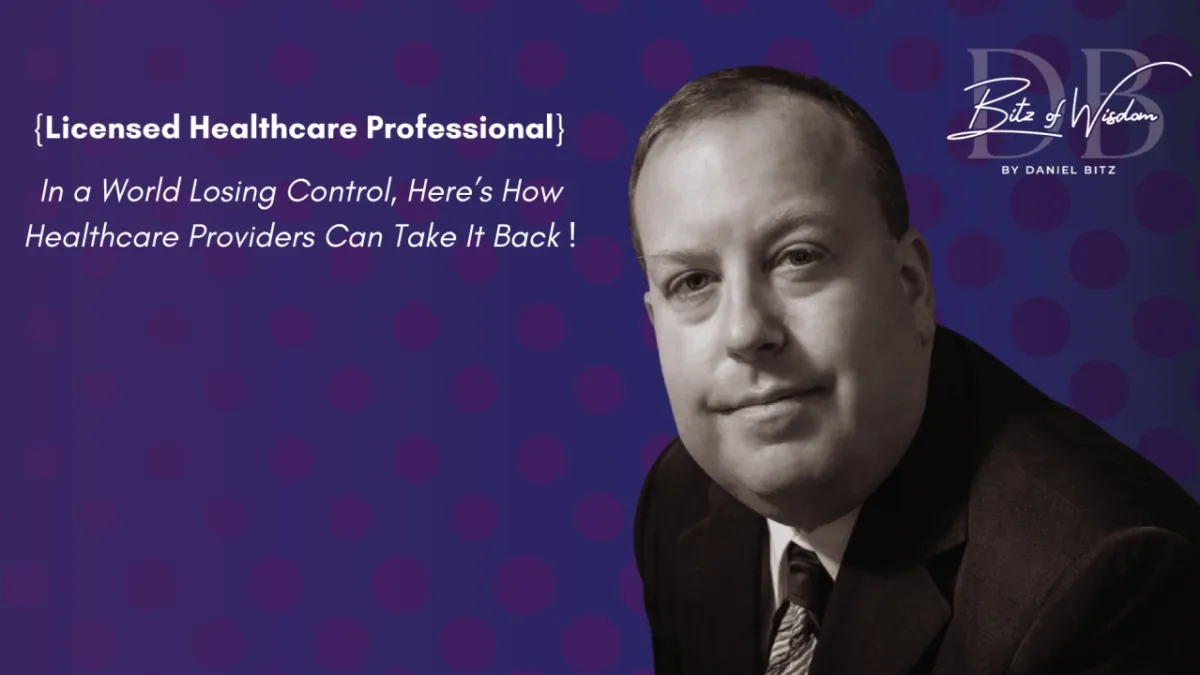
In a World Losing Control, Here's How Healthcare Providers Can Take It Back!
Written by Daniel Bitz
Posted on November 26, 2025
If it feels like the healthcare landscape is moving faster than your practice can keep up, this article shows the simple, realistic shifts that put you back in control—without adding more work or disrupting your current workflow.
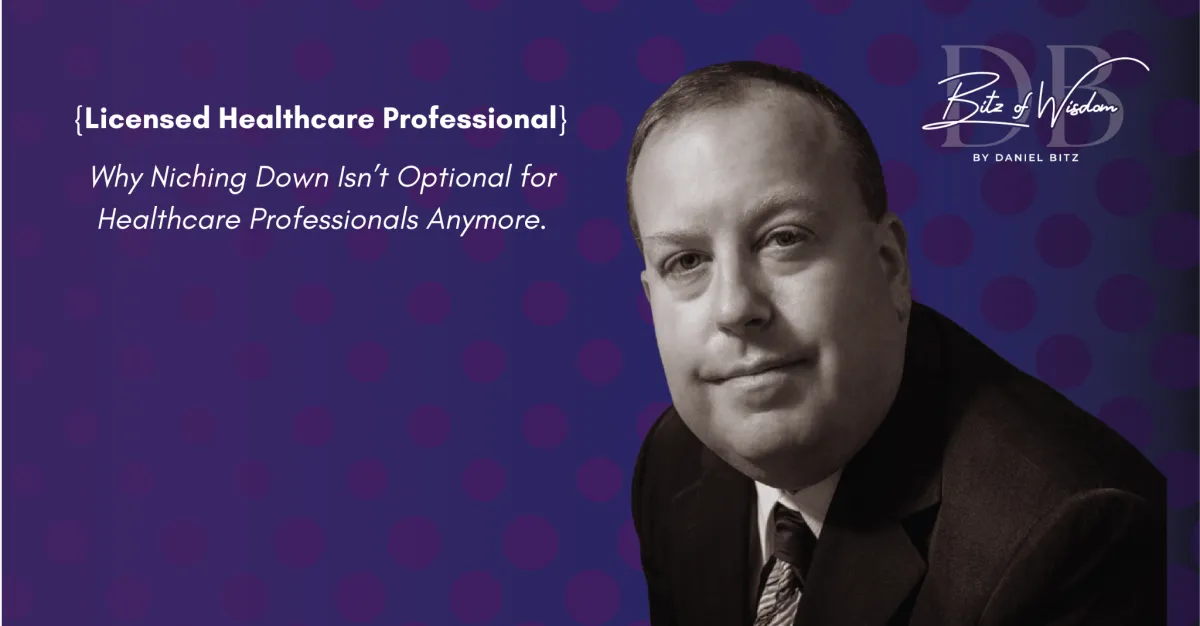
Why Niching Down Isn't Optional for Healthcare Professionals Anymore.
Written by Daniel Bitz
Posted on November 19, 2025
Most providers compete in the “bloody middle,” fighting for patients who don’t value their expertise. Stop lowering your rates and start attracting patients who truly respect what you do. Here’s how...
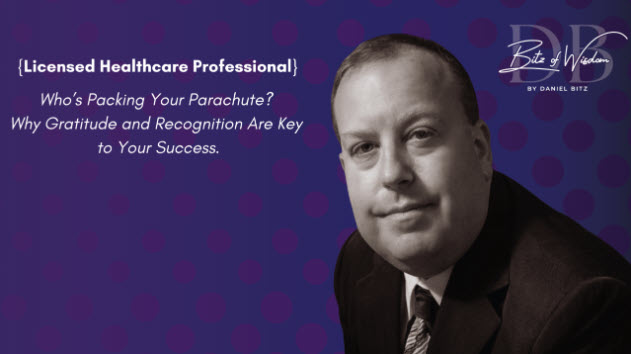
Who's Packing Your Parachute? Why Gratitude and Recognition Are Key to Your Success.
Written by Daniel Bitz
Posted on November 13, 2025
Who’s making your life easier in your practice? Chances are, there are “parachute packers” behind the scenes you don’t even realize. Discover how recognizing and building the right support can protect your time, grow revenue, and strengthen your team.

From Corporate Betrayal to Six-Figure Systems: Lessons for Your Practice Featured on Episode 56 of the Thriving Through Podcast with AJ Riedel
Written by Daniel Bitz
Posted on November 11, 2025
Just dropped slides on how to attract your ideal patients and boost revenue—check ’em out and let me know if you want the full roadmap.
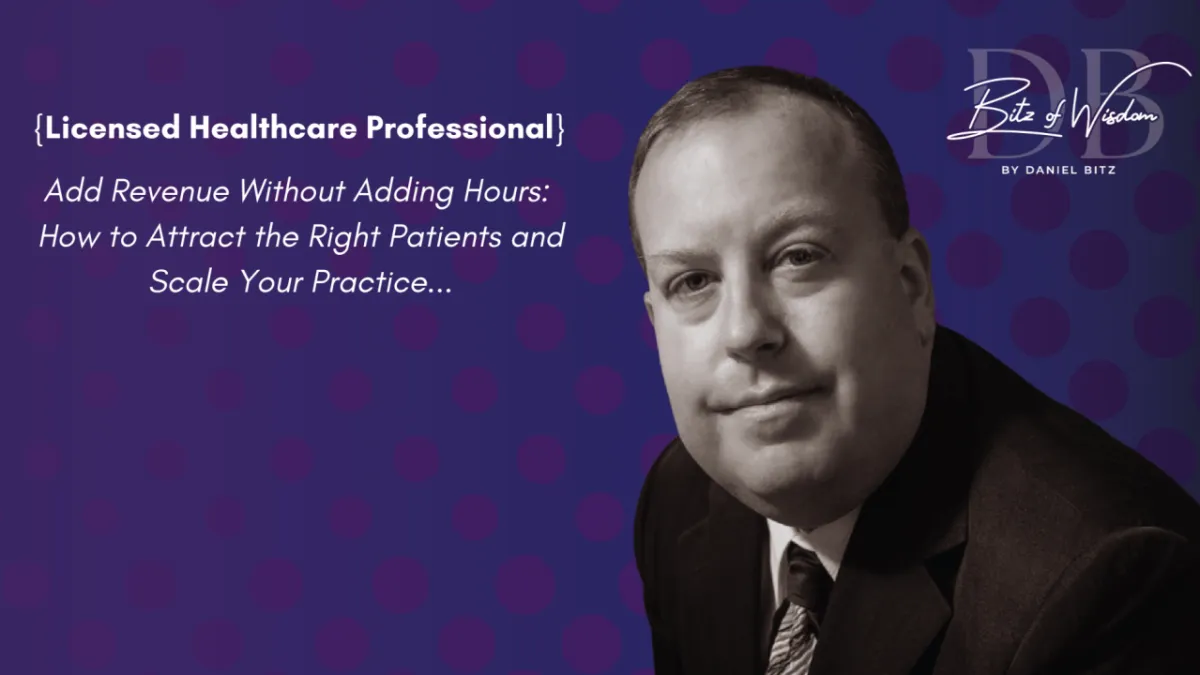
Add Revenue Without Adding Hours: How to Attract the Right Patients and Scale Your Practice...
Written by Daniel Bitz
Posted on November 5, 2025
If your practice relies on one key service, one staff member, or one product, waiting to make a change quietly drains revenue, energy, and time. The good news? Simple, realistic shifts can help you increase revenue, protect your time, and attract the right patients — today.
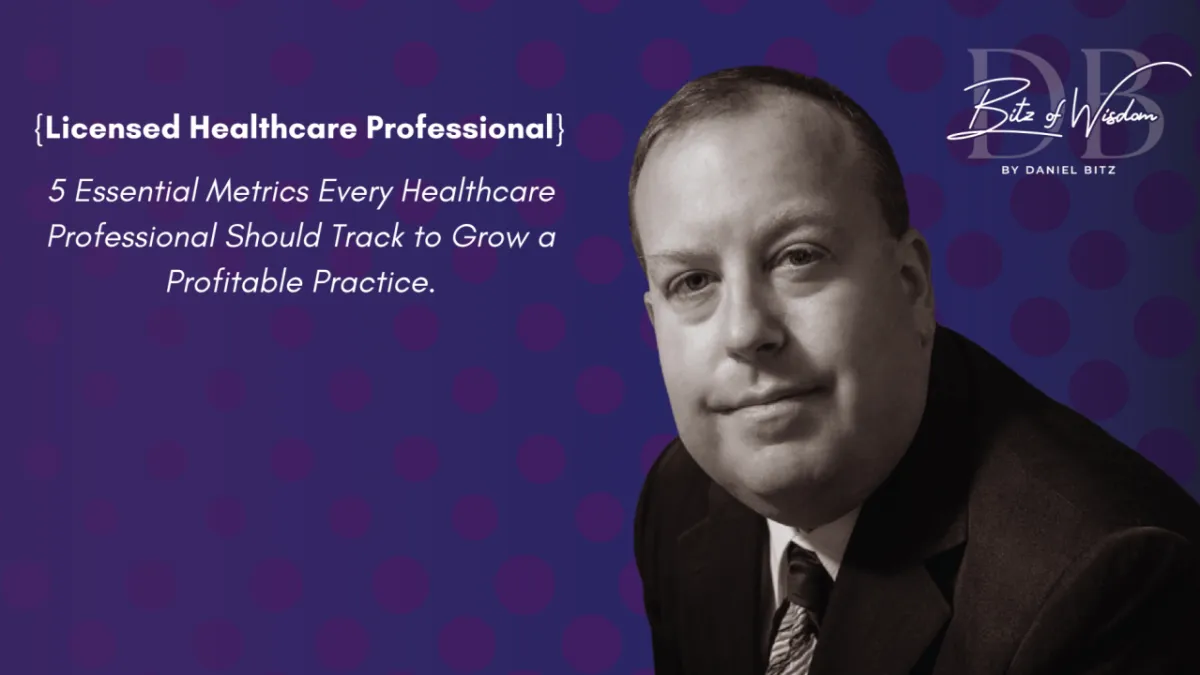
5 Essential Metrics Every Healthcare Professional Should Track to Grow a Profitable Practice.
Written by Daniel Bitz
Posted on October 29, 2025
Most healthcare professionals are passionate about patient care — but when it comes to practice growth, many are flying blind. You can’t improve what you don’t measure — and what you don’t measure quietly limits your revenue, efficiency, and long-term impact.
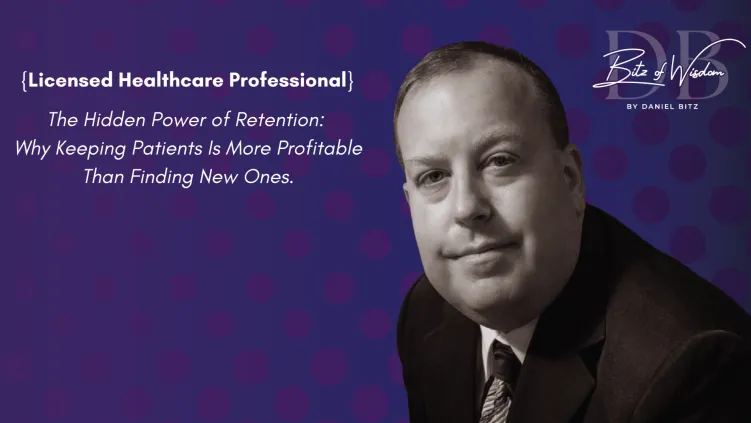
The Hidden Power of Retention: Why Keeping Patients is More Profitable Than Finding New Ones.
Written by Daniel Bitz
Posted on October 22, 2025
Here’s the truth most practices overlook—growth doesn’t always come from new patients. In fact, your biggest opportunities for profitability and impact often come from the patients you already serve.
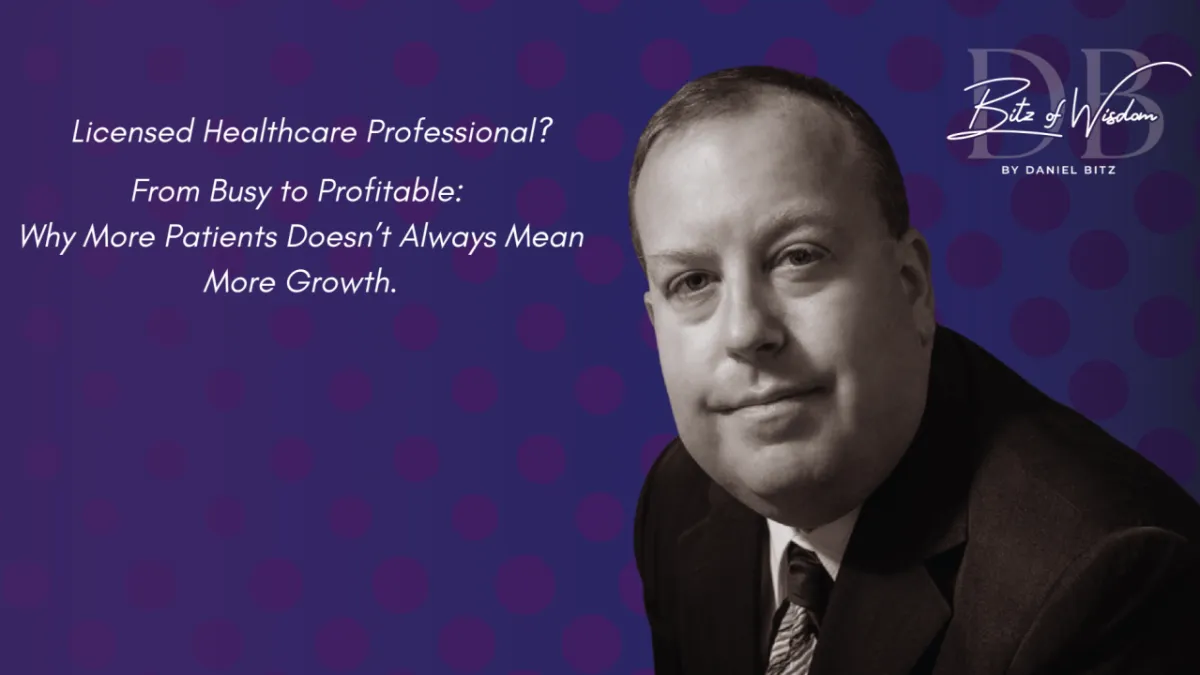
From Busy to Profitable: Why More Patients Doesn't Always Mean More Growth.
Written by Daniel Bitz
Posted on October 1, 2025
Many practices think growth means more patients and longer hours—but what if that’s actually costing you money, time, and sanity?
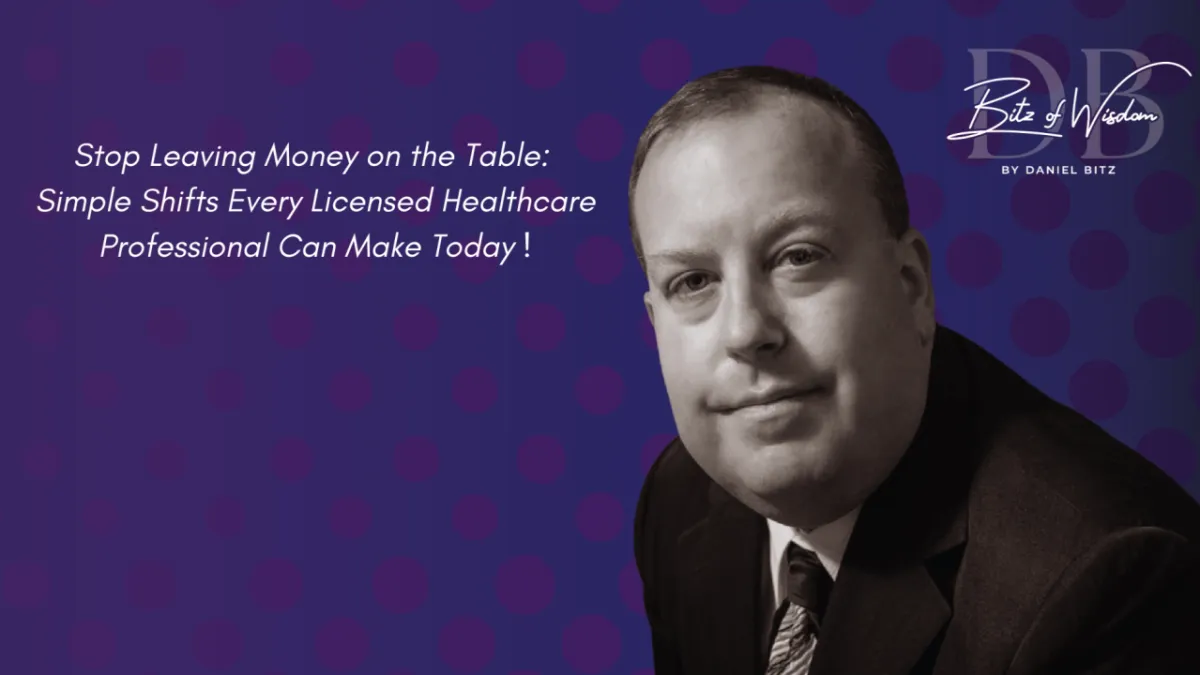
Stop Leaving Money on the Table:
Simple Shifts Every Healthcare Professional Can Make Today
Written by Daniel Bitz
Posted on September 24, 2025
Most practices don’t fail because of bad medicine — they fail because of quiet revenue leaks. Those little “generous” moves that seem harmless?
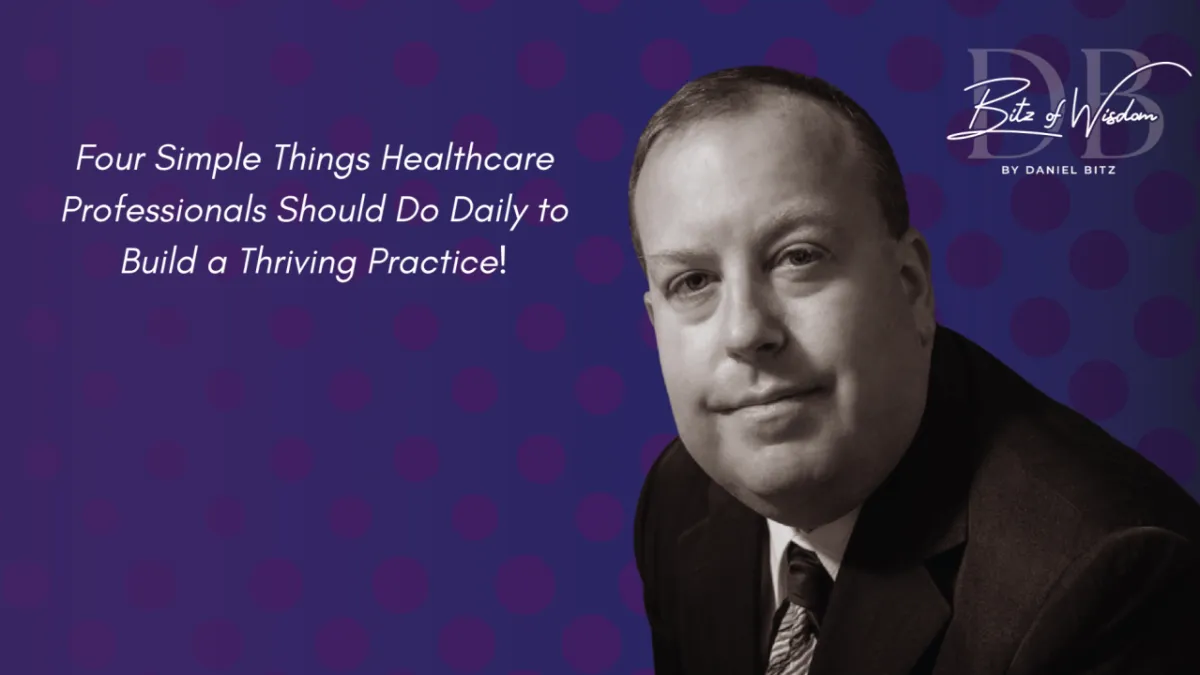
Four Simple Things Healthcare Professionals Should Do Daily to Build a Thriving Practice!
Written by Daniel Bitz
Posted on September 17, 2025
Growing a thriving practice doesn't have to be complicated. Do these four simple things everyday - and you'll unlock more revenue, freedom, and better patient outcomes.
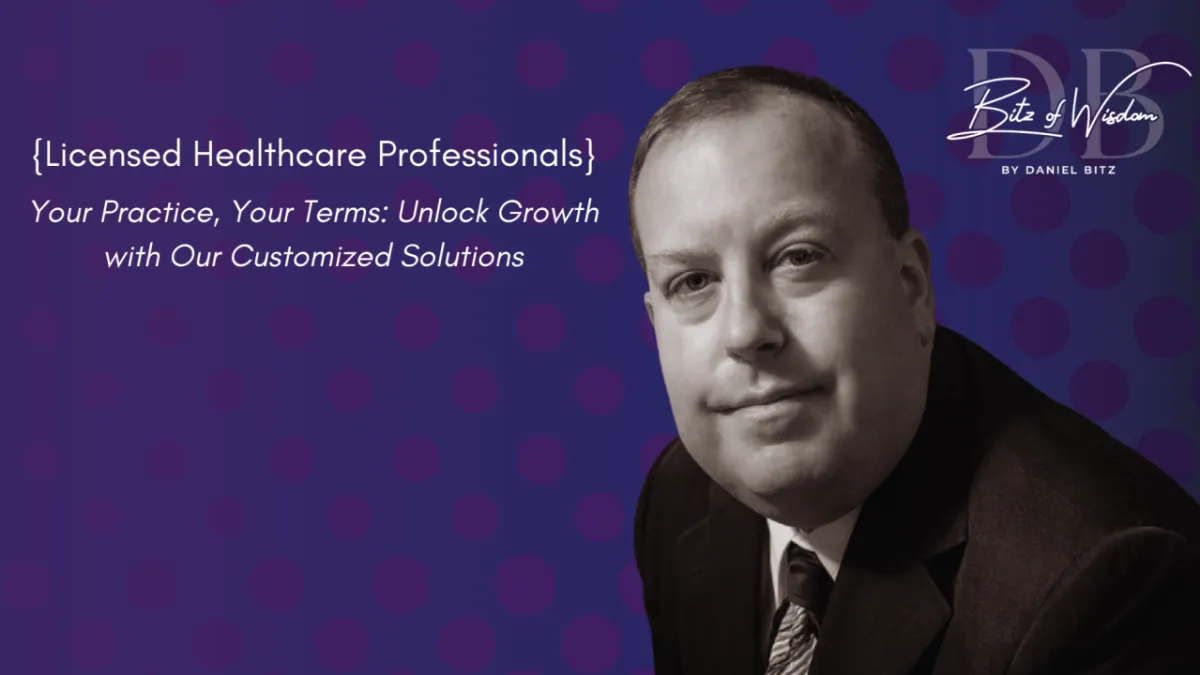
Your Practice, Your Terms: Unlock Growth with Customized Solutions.
Written by Daniel Bitz
Posted on September 10, 2025
Empower your practice with strategies designed to increase revenue, improve patient care, and grow on your own terms. Many people assume healthcare practices are thriving financially, but the reality is often very different.
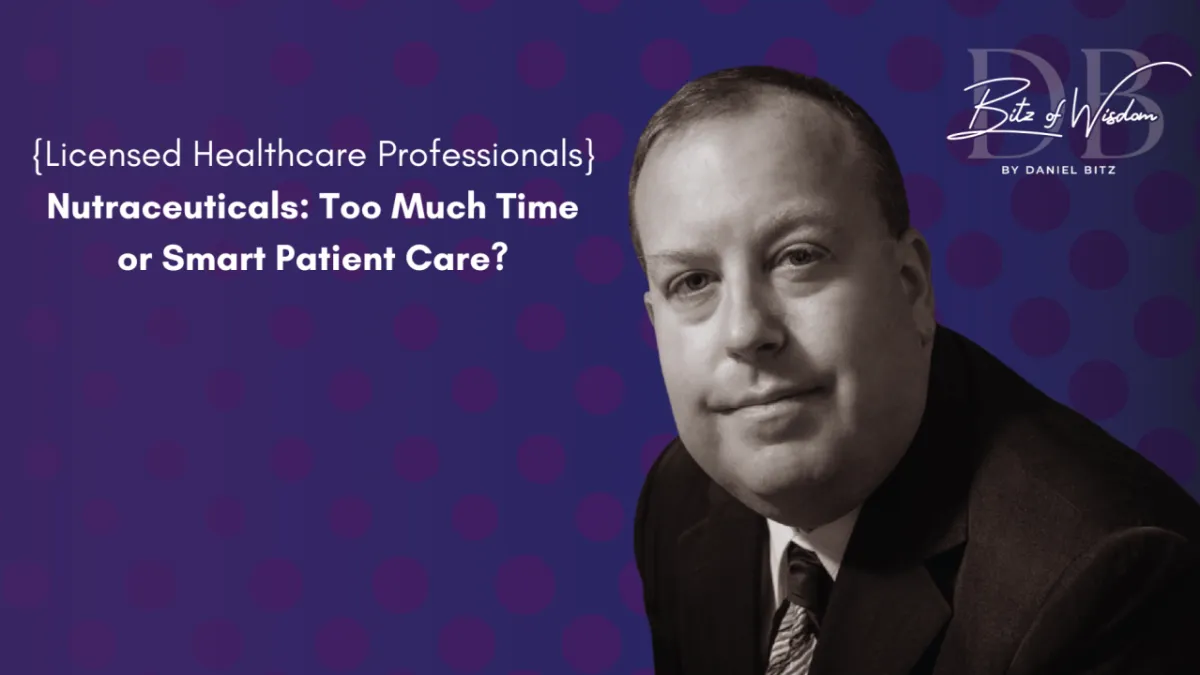
Nutraceuticals: Too Much Time or Smart Patient Care?
Written by Daniel Bitz
Posted on September 3, 2025
I sometimes hear healthcare professionals say: “Nutraceuticals always take too much time. I’d rather just see two more patients instead.”
It’s a fair concern. Your time is valuable, and the idea of adding something new to your already full schedule can feel overwhelming. But here’s the reality:
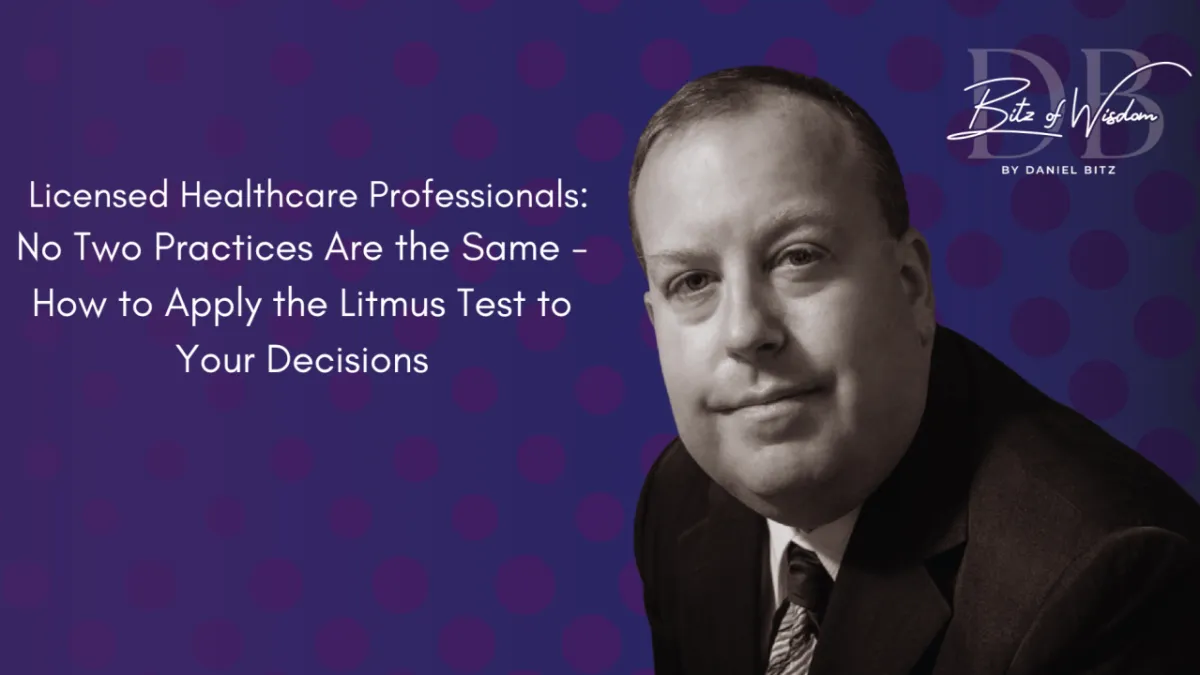
No Two Practices Are the Same: How to Apply the Litmus Test to Your Decisions
Written by Daniel Bitz
Posted on August 27, 2025
In healthcare — and in business — you’re constantly bombarded with advice.
“Launch this.”
“Buy that.”
“Follow this blueprint.”
“Here’s the secret to scaling.”
Everyone’s got a formula. Everyone’s got an opinion.
But here’s the truth:
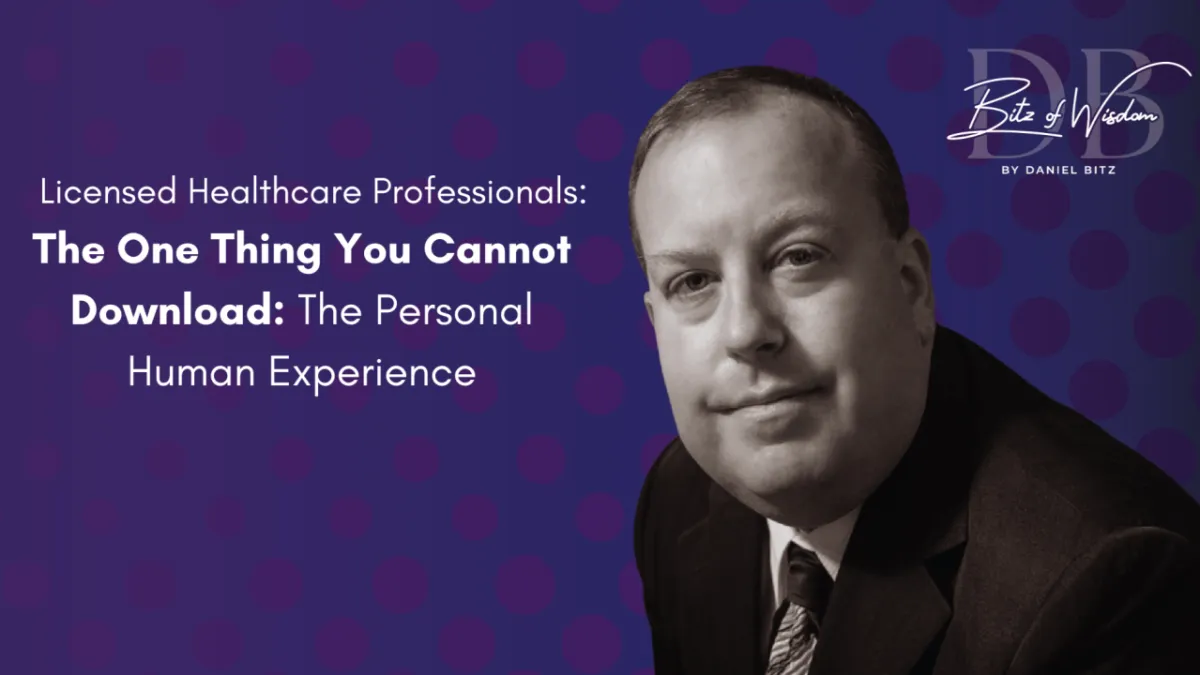
The One Thing You Cannot Download:
The Personal Human Experience
Written by Daniel Bitz
Posted on August 17, 2025
Technology can do amazing things. It can streamline processes, provide data at lightning speed, and even predict trends. But there’s one thing it can’t replace: the personal human experience.
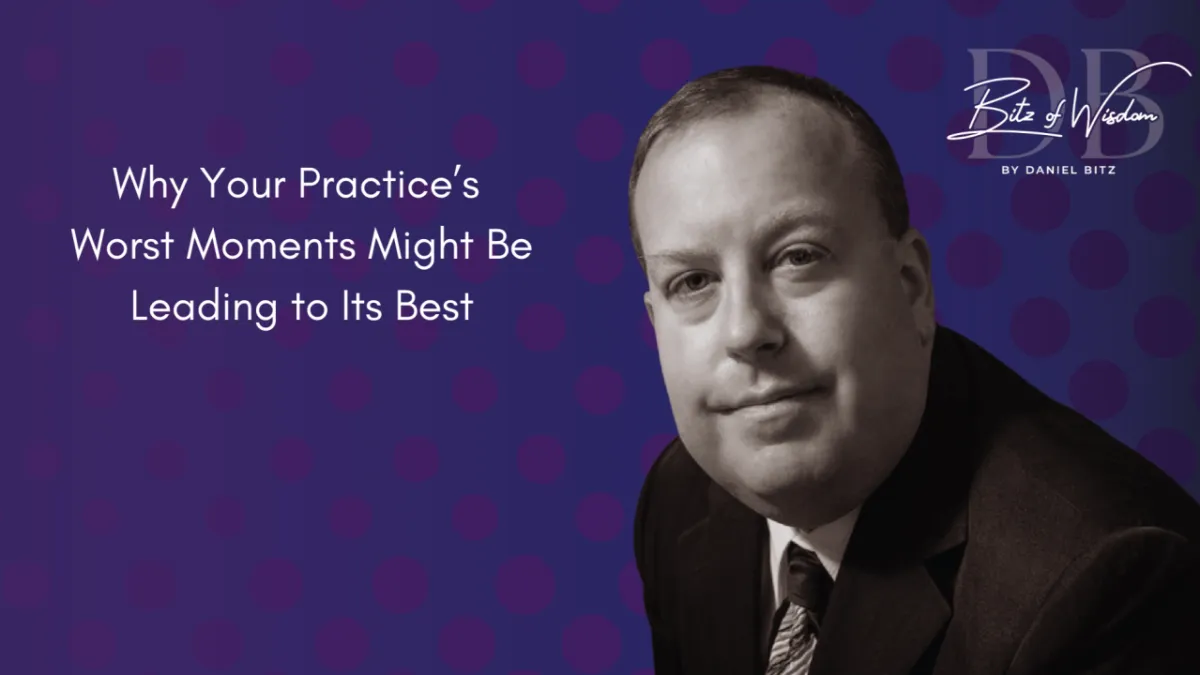
Why Your Practice's Worst Moments Might Be Leading to Its Best
Written by Daniel Bitz
Posted on July 30, 2025
Feeling off track?
Twists, setbacks, and delays don’t mean you’re headed in the wrong direction—they might just mean you’re being positioned for something greater.
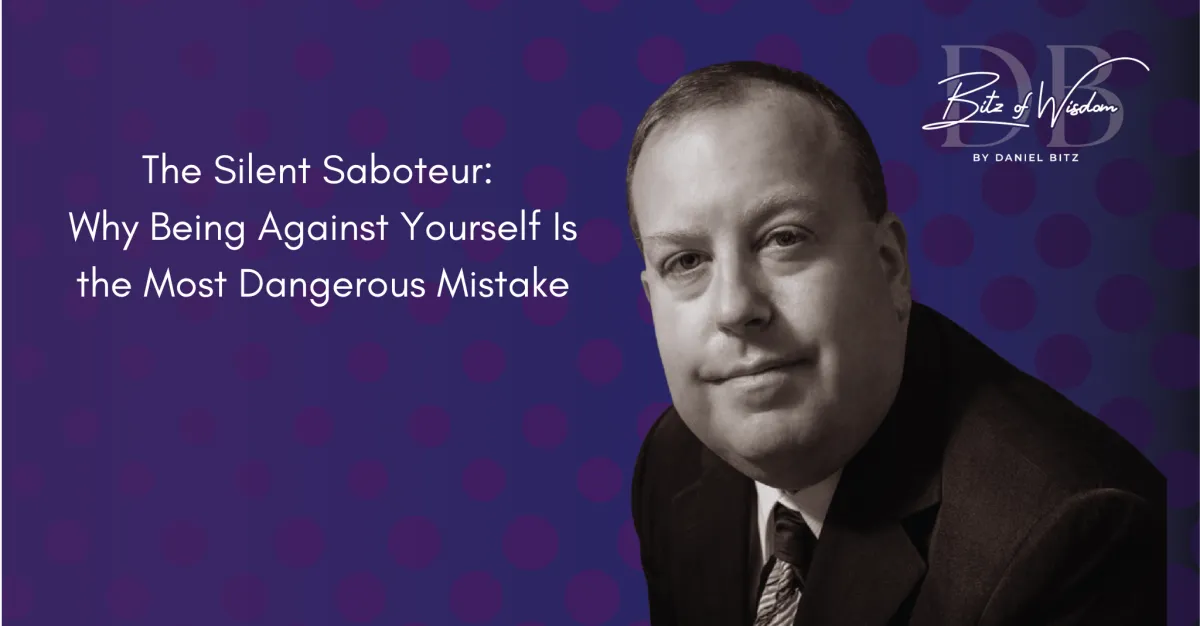
The Silent Saboteur: Why Being Against Yourself is the Most Dangerous Mistake
Written by Daniel Bitz
Posted on July 11, 2025
Healthcare professionals carry a lot. But sometimes, the heaviest burden isn’t on the outside—it’s internal. One of the most overlooked obstacles to growth and fulfillment. Being against ourselves. That quiet inner dialogue—second-guessing decisions, holding onto past mistakes, doubting our worth—can quietly sabotage our success. I unpack this simple truth: You can’t lead others well if you’re constantly tearing yourself down. If you’re a licensed healthcare professional navigating pressure, burnout, or uncertainty, this one’s for you.
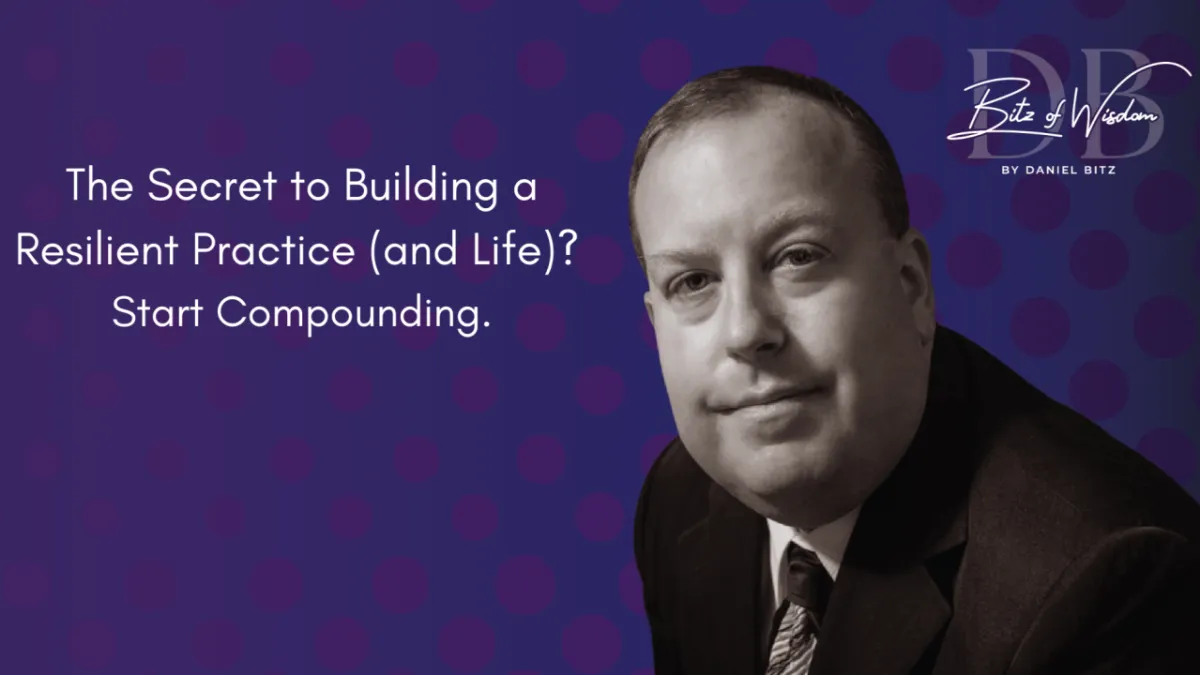
The Secret to Building a Resilient Practice (and Life)? Start Compounding
Written by Daniel Bitz
Posted on July 1, 2025
Feeling stuck? Overwhelmed? Like your goals are just out of reach?
What if the answer isn't doing more - but doing less, more consistently?
This week's post explores the quiet force that can transform your practice (and your life): Compounding.
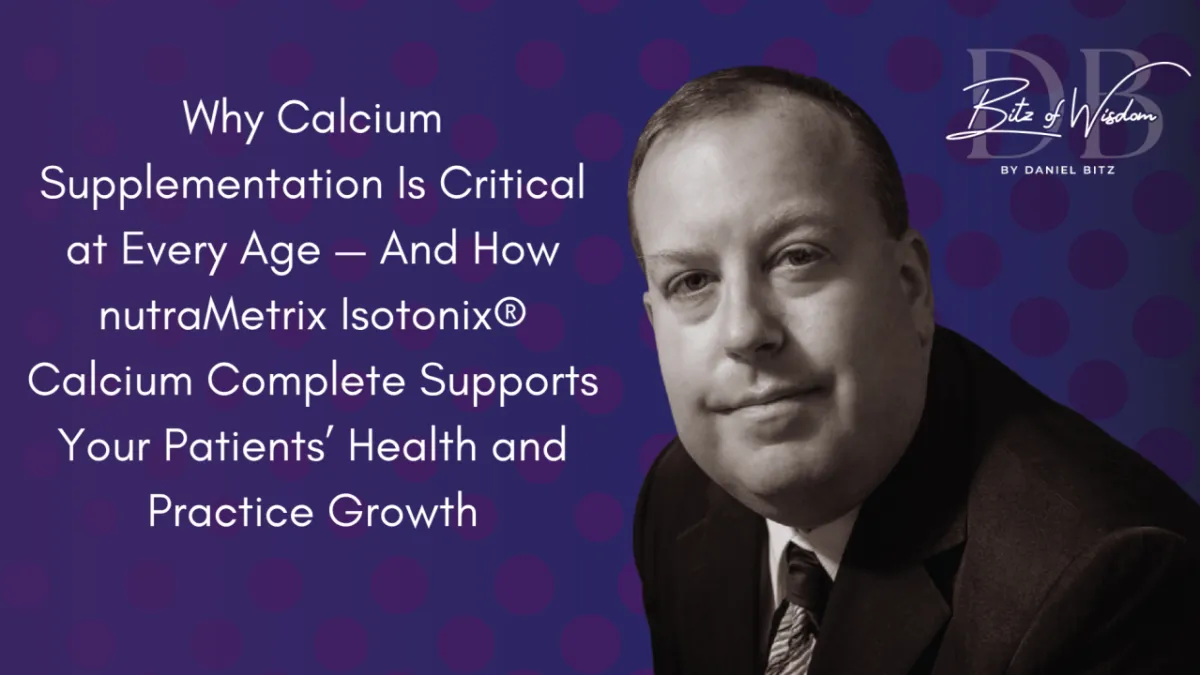
Why Calcium Supplementation Is Critical at Every Age - And How Nutrametrix Isotonix Calcium Complete Supports Your Patients' Health and Practice Growth.
Written by Daniel Bitz
Posted on June 25, 2025
Are Your Patients Getting the Calcium Support They Really Need? Calcium is critical at every age, but most supplements fall short on absorption and clinical benefits - which means your patients might not be getting the full support they deserve. In my latest post, I reveal why calcium supplementation matters across all life stages.
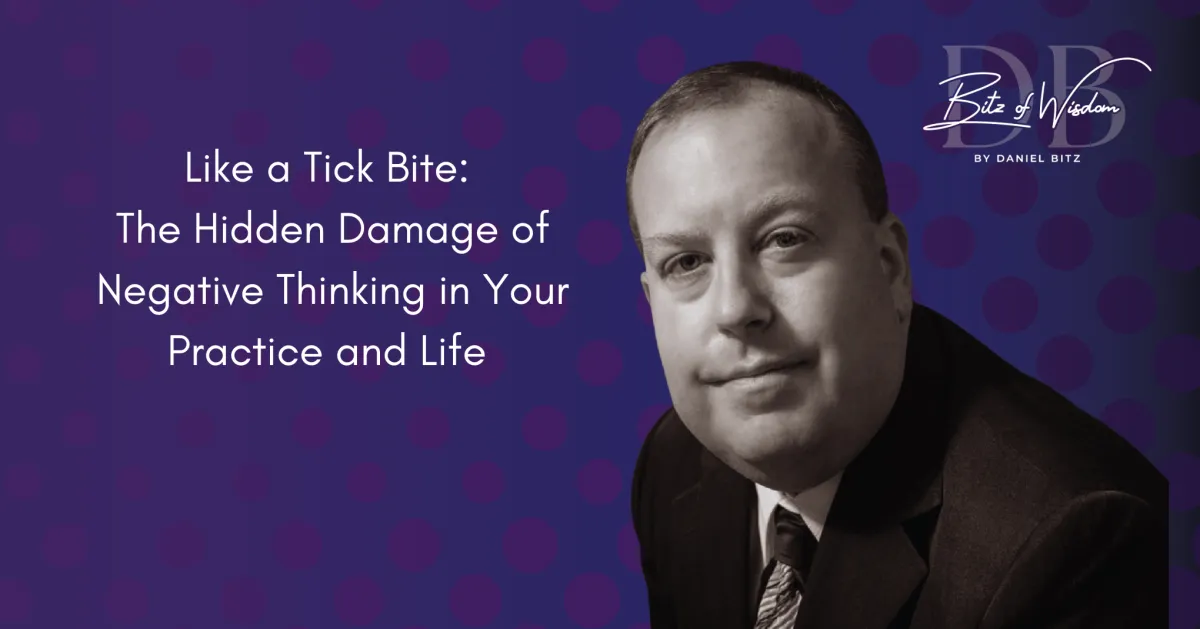
It Starts Small: How One Thought Can Infect Your Practice and Wellbeing
Written by Daniel Bitz
Posted on June 16, 2025
Ever think about how a tiny tick bite can quietly cause serious damage over time? Negative thoughts work the same way—small, subtle, but powerful if left unchecked. If you’re a healthcare professional juggling patient care and your own mindset, this one’s for you. Learn how to spot those harmful thoughts before they take hold—and protect your practice and your life. Ready to stop feeding the infection?
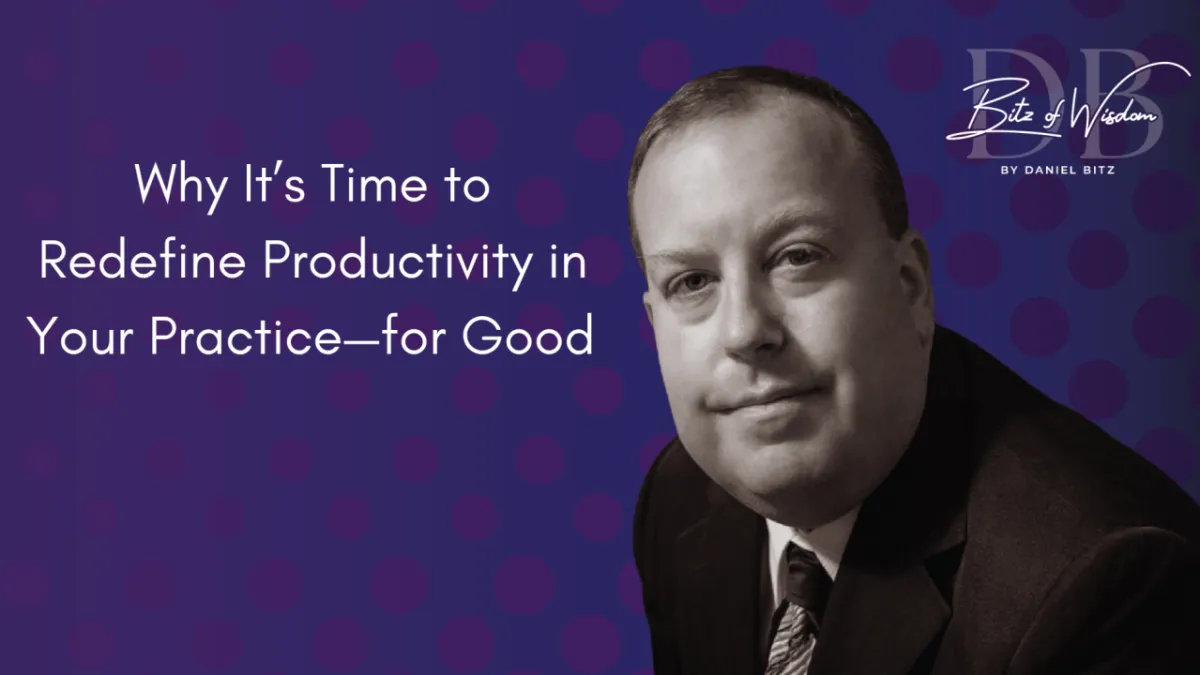
Why It’s Time to Redefine Productivity in Your Practice—for Good
Written by Daniel Bitz
Posted on June 6, 2025
Ever think about how a tiny tick bite can quietly cause serious damage over time? Negative thoughts work the same way—small, subtle, but powerful if left unchecked. If you’re a healthcare professional juggling patient care and your own mindset, this one’s for you. Learn how to spot those harmful thoughts before they take hold—and protect your practice and your life. Ready to stop feeding the infection?
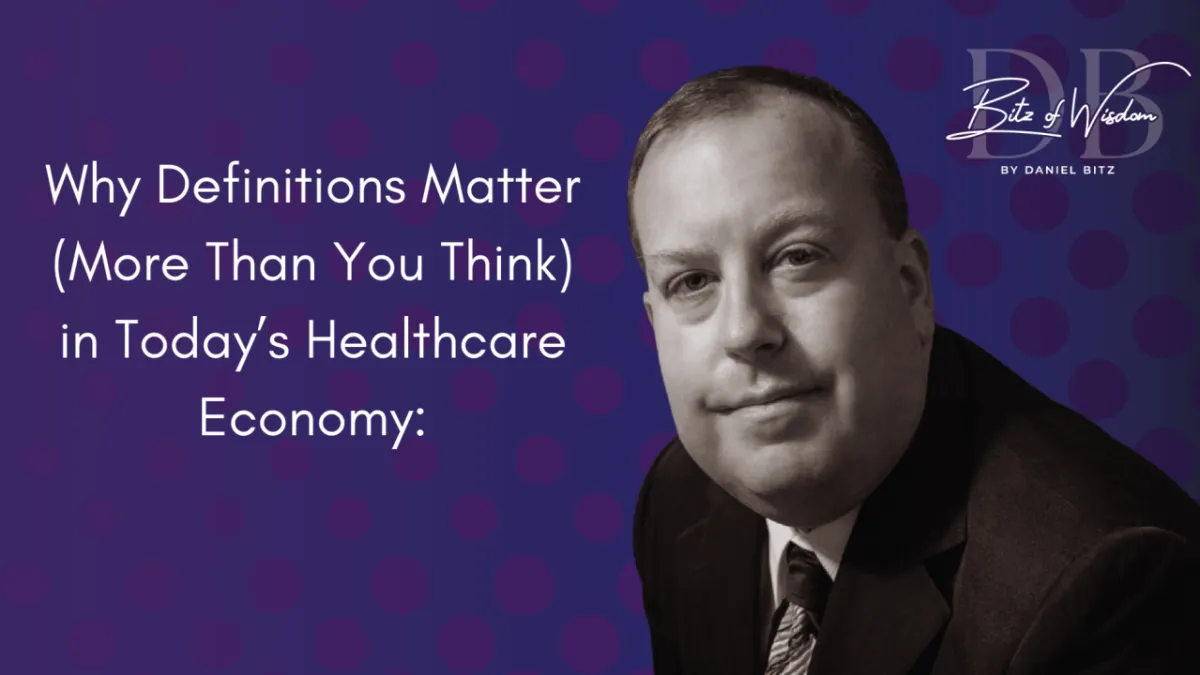
Unlocking Economic Clarity: How Definitions Impact Your Healthcare Practice.
Written by Daniel Bitz
Posted on May 23, 2025
In our latest blog post, we break down the importance of clear economic definitions and how mastering them can strengthen your practice's financial foundation. Discover actionable insights to enhance your decision-making and achieve sustainable growth. Don’t miss out—read it now!
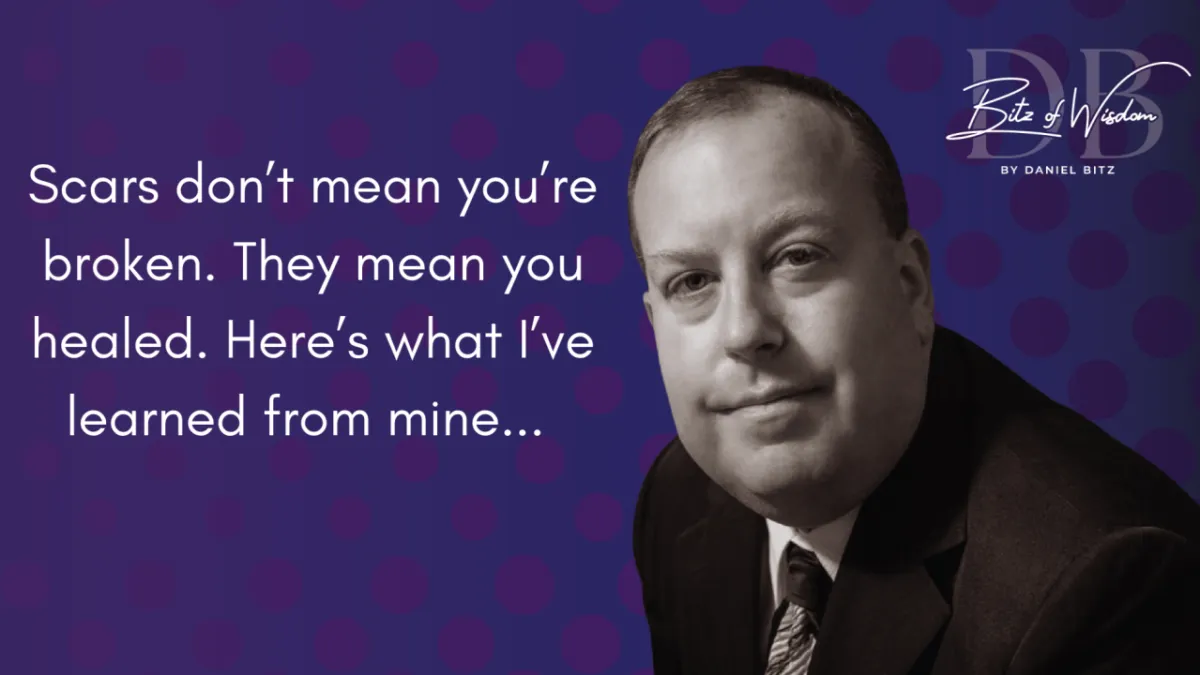
Scars don’t mean you’re broken. They mean you healed. Here’s what I’ve learned from mine.
Written by Daniel Bitz
Posted on May 17, 2025
Not all scars are visible—and they don’t mean what you might think. Here’s what my own scars taught me about strength, healing, and why your story might just be someone else’s lifeline.